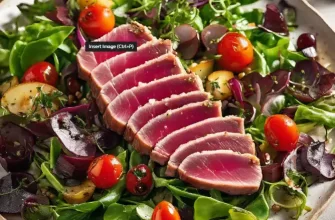It is essential to have a healthy heart for good health in general. While a balanced diet is often linked to a resilient heart, it is equally vital to recognize and stay away from foods that can be dangerous for heart disease.
In this blog post, we will provide information on some usual offenders that should be consumed in moderation or completely eliminated from our diets to maintain a healthy heart.
- Trans Fats:
Allow us to introduce trans fats, the nemesis of heart health. Trans fats are artificial fats formed by adding hydrogen to vegetable oils, prolonging their shelf life while making them more solid. These fats raise bad cholesterol (LDL) levels while lowering good cholesterol (HDL) levels, significantly increasing the risk of heart disease. It’s wise to scrutinize food labels for phrases like “partially hydrogenated oils” as they often indicate the presence of trans fats. Avoid or minimize intake of fried foods, margarine, baked goods, and processed snacks, as they are common trans fat carriers. - Saturated Fats:
While trans fats are best avoided, saturated fats are a close contender for heart health risks. These fats are commonly found in animal-based products like fatty meats, full-fat dairy products, and tropical oils such as coconut and palm oil. High intake of saturated fats raises LDL cholesterol levels, leading to the narrowing of arteries and increasing the chances of heart disease. Opt for lean meats, low-fat dairy options, and healthier cooking oils like olive or canola oil instead. - Added Sugars:
Consuming too much sugar not only affects your weight but also negatively impacts the health of your heart. Diets that contain high levels of added sugars have been associated with a higher likelihood of developing heart disease. To maintain a healthy heart, the American Heart Association advises women to limit their added sugar intake to 6 teaspoons per day and men to 9 teaspoons per day. Common culprits of added sugars include sugary drinks, desserts, baked goods, and most processed foods. Instead, choose naturally sweet options such as fresh fruits or use natural sweeteners like honey or maple syrup in moderation. - Sodium Overload:
Consuming a diet that is rich in sodium can be harmful as it can result in raised blood pressure, ultimately increasing the risk of heart diseases and strokes. The primary sources of high sodium intake are processed and packaged food items like canned soups, salty snacks, and fast food meals. Therefore, it is crucial to read labels carefully and choose low-sodium alternatives whenever available. Instead of depending heavily on salt, it is advisable to explore the use of herbs, spices, and seasoning blends to enhance the taste of meals without jeopardizing heart health. - Highly Processed Foods:
In a time of convenience, it’s simple to succumb to the temptation of depending heavily on heavily processed foods. These types of foods frequently have excessive quantities of unhealthy fats, added sugars, and sodium, which contribute to risk factors for heart disease. Be aware of frozen meals, pre-packaged snacks, and processed meats that often include preservatives, additives, and other questionable substances. Whenever feasible, give priority to whole, unprocessed foods for a diet that promotes heart health.
Taking charge of your heart health begins by being aware of the choices you make in terms of your diet. Limiting your intake of trans fats and saturated fats, steering clear of added sugars and excessive sodium, and avoiding heavily processed foods can help decrease the risk of heart disease.
Opting for a diet that promotes heart health and includes wholesome, nutrient-rich foods can have a positive impact on your overall well-being. It is important to note that even minor adjustments to your eating habits can result in substantial, long-lasting advantages for your heart.









